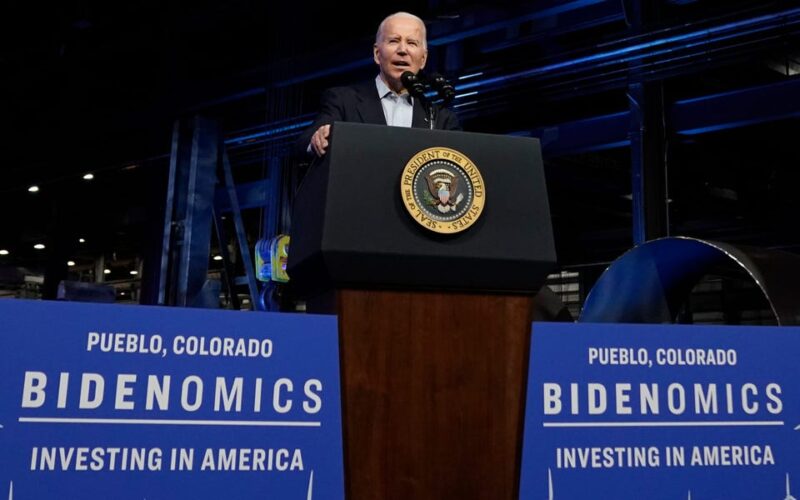The Biden administration wants to ensure businesses are paying their clean energy workers well — and it’s using a new tax break to push for it.
The Treasury Department, alongside the Internal Revenue Service, announced a final rule on Tuesday that stipulates how clean energy projects can get their tax break from the Inflation Reduction Act multiplied by five by paying workers more.
“No developer will leave that money on the table,” John Podesta, Senior Advisor to the President for International Climate Policy, told reporters.
To qualify, projects have to hire registered apprentices, who are paid for their work and earn credentials while doing it, and pay the prevailing wage to their workers, a level of minimum pay generally set for workers on government contracts. While prevailing wage has “long applied” to federal projects, according to Treasury Secretary Janet Yellen, this is the first time it’s been applied to clean energy tax incentives.
“This is a major step to put American workers at the center of the clean energy economy. It will help to attract and strengthen a skilled workforce in partnership with our nation’s labor unions and private sector companies, and it’ll help make sure this workforce is well paid,” Yellen said in a call with reporters.
The rule gets at one of the big issues facing the clean energy economy: It doesn’t pay as well as jobs in more carbon-intensive fossil fuel energy. For instance, a 2021 paper from the University of Massachusetts Amherst’s Political Economy Research Institute found that while clean energy work in California pays $86,000 — above the average national wage of $65,000 — fossil fuel work pays, on average, $130,000.
Of course, there is now more opportunity for clean energy work as the industry grows, and some jobs have robust pay — but many roles require a bachelor’s degree or apprenticeship experience, underscoring the importance of hiring apprentices.
Sean McGarvey, president of North America’s Buildings Trades Unions, told reporters that in the past, the average solar worker earned less than a quarter of NABTU members’ total wage and benefits package.
“That’s why we were so reluctant without these rules that are being put in place to embrace the clean energy transition; we were always talking about a just transition,” McGarvey said. “In the fossil fuel industry, our experience has been for the last hundred years that they pay top wages and fringe benefits, and, in the renewable industries that burgeoned over the last several decades, that has not been the case.”
The new rule could open up the type of federal tax support for clean energy that fossil fuel companies have enjoyed for decades.
“With these new rules in place, there will be huge increases for many, many people that are existing in this industry right now and the opportunities for hundreds of thousands of people to join this industry with middle-class family-sustaining wages and with good healthcare and post-retirement benefits,” McGarvey said.
Are you considering going into clean energy for higher pay? Contact this reporter at jkaplan@businessinsider.com.
Source link
lol

